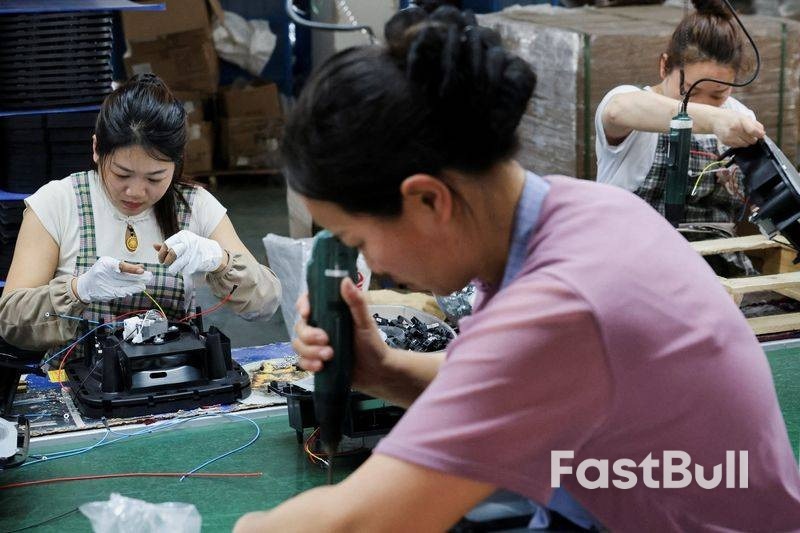China Factory Activity Shrinks For Seventh Month, PMI Shows
China's factory activity shrank for a seventh month in October, an official survey showed on Friday, keeping alive calls for further stimulus to boost domestic demand, with efforts to ship goods abroad merely exporting price wars.
China's factory activity shrank for a seventh month in October, an official survey showed on Friday, keeping alive calls for further stimulus to boost domestic demand, with efforts to ship goods abroad merely exporting price wars.The official purchasing managers' index (PMI) fell to 49.0 in October from 49.8 in September, a six-month low, the National Bureau of Statistics' survey showed on Friday. It remained below the 50-mark separating growth from contraction, and missed a median forecast of 49.6 in a Reuters poll.
The non-manufacturing purchasing managers' index (PMI), which includes services and construction, rose to 50.1 from 50.0 in September."Economic momentum has weakened since the middle of the year. The property sector slowdown continues to put pressure on domestic demand," said Zhiwei Zhang, chief economist at Pinpoint Asset Management. "The fiscal stance has not changed significantly to offset such downward pressure."The prolonged slump comes as manufacturers struggle to mount a sustained recovery in the years since the COVID pandemic and a costly trade war with U.S. President Donald Trump forces factory owners to give up on the world's top consumer market.
Producers are also having difficulty making ends meet in new markets, with exporters increasingly selling at a loss in Europe, Latin America, the Middle East and Africa.
The PMI, a sentiment-based survey, has at times presented a gloomier picture of the economy than the hard data, with September's industrial output and profit figures showing growth for a third and second consecutive month, respectively. But analysts warn those gains were likely distorted by a push from China's large, state-owned firms."Given that we are actually seeking a bit more stimulus in the fourth quarter - investment driven by policy financing tools and new government bonds - I am a bit surprised by the drop in the PMI reading this month," said Xu Tianchen, senior economist at the Economist Intelligence Unit.
China's economic growth slowed to 4.8% in the third quarter, its weakest pace in a year. While that keeps the world's second-largest economy on track to meet its target of roughly 5% this year, it raises questions about Beijing's reliance on external demand amid mounting trade tensions.The ruling Communist Party pledged to boost domestic consumption following a four-day closed-door meeting last week that outlined economic and policy objectives for the next five years, while also emphasising efforts to strengthen its vast industrial system.However, analysts question whether Beijing has anything new to offer or is simply reaching for its usual playbook of channeling resources to large firms while bypassing private producers and households.
Some analysts believe Beijing doesn't need more stimulus this year, while others see speeding up infrastructure investment as a way to ensure the economy remains on target in the fourth quarter.That does little to ease longer-term concerns over Beijing's ability to rebalance an economy in which household consumption trails global averages by about 20 percentage points of GDP.

"The stimulus will be just enough to reach the full-year target, and to not make any indicators look too bad leading up to the beginning of the fifteenth five-year plan period," said Dan Wang, director for China at Eurasia Group.Analysts polled by Reuters forecast the private-sector RatingDog PMI to come in at 50.9 on Monday, down from 51.2 a month prior.









